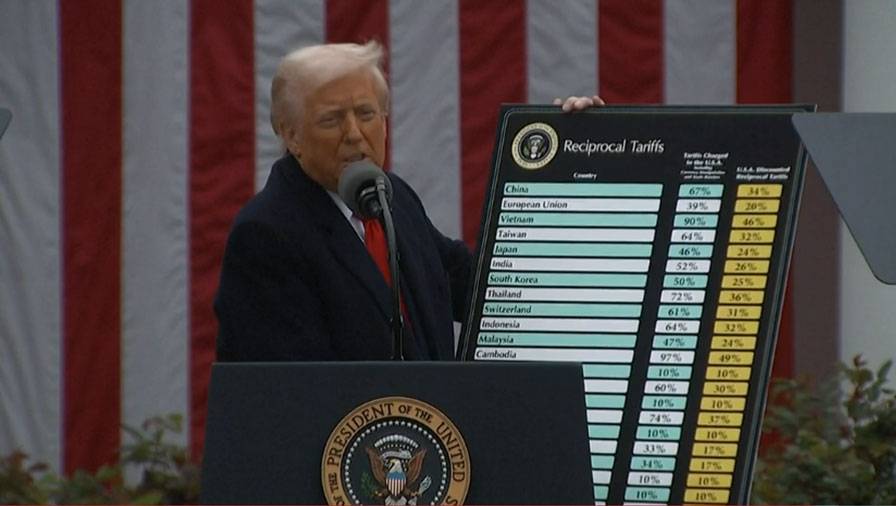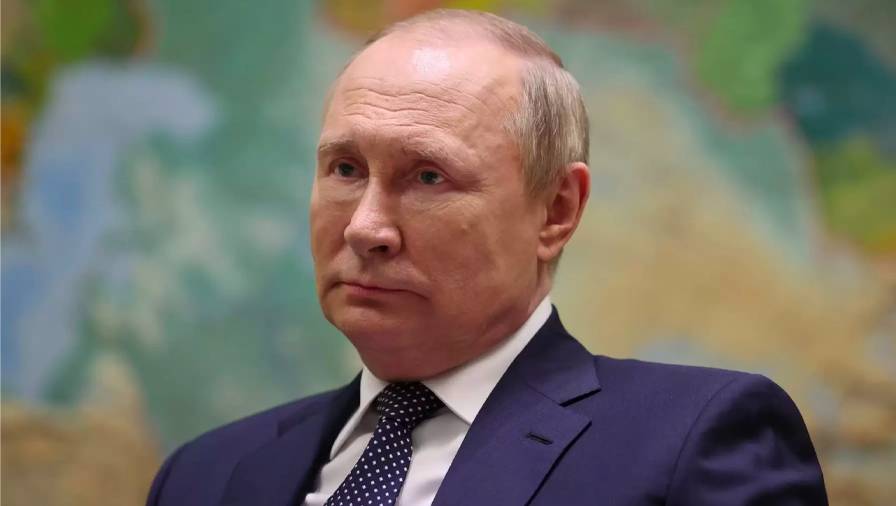China ready to ‘fight to the end’ on trade; Trump approval slips
And the UK economy expands faster than expected in February.
Chinese President Xi Jinping. Photo credit: Paul Kagame.
And the UK economy expands faster than expected in February.
Chinese President Xi Jinping. Photo credit: Paul Kagame.
Ata mārie and welcome to the start of a short working week. Here’s your summary of the top stories from around the world this weekend.
First, US Commerce Secretary Howard Lutnick said a trade tariff exemption on a range of electronics, including semiconductors and smartphones, was only temporary, CNN reported. Tariffs on specific business sectors would eventually be imposed in the next couple months on some products key to national security, Lutnick told ABC This Week. “Those products are going to be part of the semiconductor sectoral tariffs, which are coming.”
Meanwhile, China raised its tariffs on US products to 125% in the latest tit-for-tat, hours after President Xi Jinping said there were “no winners in a tariff war”, the Guardian reported. China said it was raising the 84% tariffs on all US imports to 125%, saying that China was ready to “fight to the end”. French President Emmanuel Macron described US President Donald Trump’s 90-day tariff pause – excluding China – as “fragile”.
CNBC recapped the volatile week on Wall Street, with positivity to end the trading week. The S&P500 gained 1.8%, the Dow Jones rose 1.5%, while the tech-heavy Nasdaq climbed just over 2%, following comments from the White House that Trump was “optimistic” that China would secure a deal with the US.
Billionaire Bridgewater founder Ray Dalio said he was worried that the turmoil from Trump’s tariff and economic policies would threaten the global economy, CNBC reported. “Right now, we are at a decision-making point and very close to a recession,” Dalio told Meet the Press. “I’m worried about something worse than a recession if this isn’t handled well.”
The hedge fund billionaire said he was concerned about trade disruptions and rising US debt. Dalio said the fallout from turmoil in bonds could be a more severe shock to the monetary system than the 2008 financial crisis, CNBC noted.

US President Donald Trump.
Meanwhile, Trump’s approval ratings for handling the economy and inflation have slipped, according to a new poll from CBS News. A broad majority expect at least short-term price increases and economic harm from the tariff policies, CNN reported. Just over 50% thought the economy was getting worse, while 49% said Trump’s policies were making them financially worse-off. The poll was conducted online with 2410 adults.
Bloomberg reported that Trump is in excellent health, according to his latest physical examination. The 78-year-old was “fully fit to execute the duties of the Commander-in-Chief and Head of State”, physician Sean P. Barbabella said. There were no abnormalities in his mental status, cranial nerves, motor and sensory function, reflexes, gait and balance, and “remains in excellent health”.

Russian President Vladimir Putin.
In other news, US special envoy Steve Witkoff met with Russian President Vladimir Putin for more than four hours on Friday local time, as Trump urged the Russian leader to "get moving" on a ceasefire in Ukraine, the BBC reported.
On the ground, a Russian ballistic missile attack on the Ukrainian city of Sumy killed at least 34 people and wounded more than one hundred others, Al Jazeera reported. Two missiles hit the centre of the city as people gathered to celebrate Palm Sunday, the first day of the Christian Holy Week, according to officials.
Ukrainian President Volodymyr Zelensky said the death toll included two children. “It is crucial that the world does not stay silent or indifferent. Russian strikes deserve nothing but condemnation. There must be pressure on Russia to end the war and guarantee security for people.”
Elsewhere, France required a further €40 billion in savings to reach its 2026 budget deficit target, Bloomberg reported. Finance Minister Eric Lombard said the Government was maintaining its target of 4.6% of GDP. He noted “additional efforts” to meet that goal, including savings and possibly higher revenue from an eventual economic recovery. Last week, France cut its growth forecasts because of global tariff uncertainty.
Meanwhile, the UK economy expanded by a faster than expected 0.5% in February, the Guardian reported. The increase was above 0.1% expected by economists, while January’s 0.1% decline was revised to zero growth. The Office for National Statistics said there was growth across all sectors in February, including manufacturing and construction.